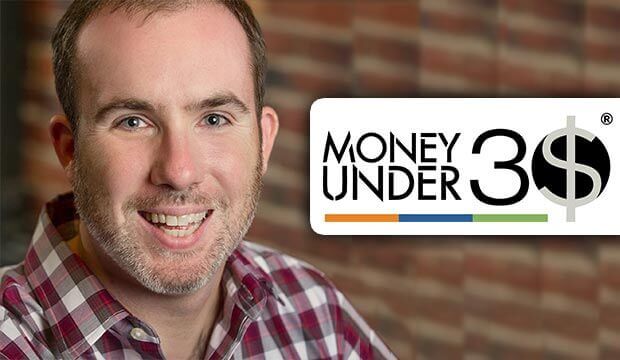David Weliver is worth listening to, because he was once worthless.
When he was 26 years old, David Weliver lived in an 8×10-foot room in a rented house with three roommates. The only item he owned in abundance was debt — $80,000 of it.
Would you take financial advice from a man like that? Well, you should.
A decade later, and Weliver is a financial success, and not just for himself. He inspires financial success in others, through his website Money Under 30.
I’ve never met Weliver, but we met on the phone the other day. We were brainstorming ways to tell people that October is Financial Planning Month. It’s always difficult to make people aware of these awareness months. I once compared April’s Financial Literacy Month to convincing people to go to the dentist, but Weliver has a much more pleasant analogy.
Sweating away debt
“It’s just like exercising,” he says. “We all want to lose weight, and we all go through the struggles of starting a plan — and then falling back into our old ways. Well, a personal trainer doesn’t really tell you anything you already didn’t know, but you’re more likely to show up and do the work with greater intensity, because they’re watching you and encouraging you.”
Weliver says what works for losing weight works just as efficiently for losing debt.
“Some people who might benefit the most from working with a financial planner or counselor might never think they’re a candidate for that,” he says. “But when people are struggling with debt, they need help making a plan and staying on track, because it can take a long time to get out of debt.”
As a financial planner, counselor, and CPA myself, I asked Weliver about one big question I’m always asked: If I have no money, how can I afford professional help?
“Certainly, none of these options are free, and for someone who’s in a lot of debt, it can be a difficult decision,” Weliver says. “It can cost a couple hundred dollars for a few hours or $1,000 for a comprehensive plan. But you need to ask, How much am I paying every month in interest and fees?”
When to get help
Like Weliver’s Money Under 30, Debt.com offers lots of free advice for getting out of debt yourself, from Do-It-Yourself Student Loan Consolidation to trying your own credit repair — although when a Debt.com writer tried that, she called it a nightmare.
Interestingly, when Weliver was mired in debt, he never consulted a financial planner or counselor. He wishes he did.
“In hindsight, it might’ve been helpful,” he says. “If I had taken that step, someone could’ve smacked me over the head so I could finally come to the realization I was doing something wrong.”
One problem feeding Weliver’s youthful arrogance was his job. He worked for The Wall Street Journal’s personal finance magazine, called Smart Money. He was 22 years old, living in New York City, and “blissfully ignorant.”
“Obviously, I wasn’t ready to listen to anyone,” he says.
That’s why he started Money Under 30 — to speak to young people. It’s often a thankless job.
“No one comes to Money Under 30 excited,” he laments. “They come when they’re in too much debt or there’s some one throwing 401(k) paperwork at them at their job, and they have urgent questions.”
I know the feeling. No one comes to Debt.com because they’re happy with the way their finances have gone. For both Weliver and myself, the satisfaction of our jobs is counted in slender percentages.
“It can be frustrating,” he says. “Maybe 80 to 90 percent will get the answer and go away.” Why? Because the answer isn’t easy. Getting out of debt is literally like falling down a hole. It’s quicker to the bottom than back to the top.
‘That’s why only a small percentage will say, I want to learn about this and do better,” Weliver says.
He and I are in this business for that small percentage, and when they write you with heartfelt thanks for putting them on the path toward financial freedom — for themselves and their families — it makes it all worth it.
What to do now
If you’re in that slender percentage, Weliver and I agree: Check out all the free resources online before you seek a financial counselor or planner. Read Money Under 30 or Debt.com or any of the other wonderful personal finance websites out there.
(If you’re wondering why these sites aren’t competitive, and why we support each other, the reason is a sad one: There’s no shortage of customers. Debt in this country is a massive problem. Just check out these depressing stats.)
My personal recommendation: Read What Is Credit Counseling… And Why Do I Need It? If that speaks to you, call one of Debt.com’s certified credit counselors at 1-888-503-5563. The call is free, and so is the debt analysis you’ll receive. You’re under no obligation to do anything.
As Weliver says, “If you’re in debt and you need to get motivated and make some changes, there are so many good stories out there. I’m not unique in that. You need to know: You’re not alone.”
Howard Dvorkin is a CPA and chairman of Debt.com, an educational resource for those who want to conquer all forms of debt in their lives.








